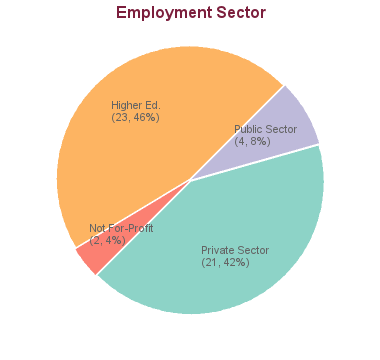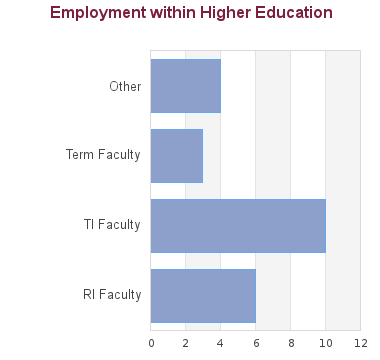Canadian Immigration Updates
Review details about the recently announced changes to study and work permits that apply to master’s and doctoral degree students. Read more
Overview
The Counselling Psychology Program, in line with the mission of the research-intensive University of British Columbia, creates, advances and critically examines knowledge in counselling psychology, especially with respect to its validity, applicability, limits, and interface with other disciplines. In developing and applying pertinent and innovative research methodologies, the Counselling Psychology Program relies upon and builds qualitative and quantitative evidence to determine effective counselling interventions in educational, community, health, and occupational settings.
Our Doctoral Program is accredited by the Canadian Psychological Association and follows the scientist-practitioner model for the education of counselling psychologists: students receive a substantial education as both researchers and professional psychologists. Designed for those with relevant experience who want to gain doctoral level competence, this program enhances research, counselling theory, and counselling skills.
Quick Facts
Program Enquiries
Contact the program
Admission Information & Requirements
1) Check Eligibility
Minimum Academic Requirements
The Faculty of Graduate and Postdoctoral Studies establishes the minimum admission requirements common to all applicants, usually a minimum overall average in the B+ range (76% at UBC). The graduate program that you are applying to may have additional requirements. Please review the specific requirements for applicants with credentials from institutions in:
Each program may set higher academic minimum requirements. Please review the program website carefully to understand the program requirements. Meeting the minimum requirements does not guarantee admission as it is a competitive process.
English Language Test
Applicants from a university outside Canada in which English is not the primary language of instruction must provide results of an English language proficiency examination as part of their application. Tests must have been taken within the last 24 months at the time of submission of your application.
Minimum requirements for the two most common English language proficiency tests to apply to this program are listed below:
TOEFL: Test of English as a Foreign Language - internet-based
Overall score requirement: 90
Reading
22
Writing
22
Speaking
22
Listening
22
IELTS: International English Language Testing System
Overall score requirement: 6.5
Reading
6.0
Writing
6.0
Speaking
6.0
Listening
6.0
Other Test Scores
Some programs require additional test scores such as the Graduate Record Examination (GRE) or the Graduate Management Test (GMAT). The requirements for this program are:
The GRE is required by all applicants.
2) Meet Deadlines
3) Prepare Application
Transcripts
All applicants have to submit transcripts from all past post-secondary study. Document submission requirements depend on whether your institution of study is within Canada or outside of Canada.
Letters of Reference
A minimum of three references are required for application to graduate programs at UBC. References should be requested from individuals who are prepared to provide a report on your academic ability and qualifications.
Statement of Interest
Many programs require a statement of interest, sometimes called a "statement of intent", "description of research interests" or something similar.
Supervision
Students in research-based programs usually require a faculty member to function as their thesis supervisor. Please follow the instructions provided by each program whether applicants should contact faculty members.
Instructions regarding thesis supervisor contact for Doctor of Philosophy in Counselling Psychology (PhD)
Criminal Record Check
Citizenship Verification
Permanent Residents of Canada must provide a clear photocopy of both sides of the Permanent Resident card.
4) Apply Online
All applicants must complete an online application form and pay the application fee to be considered for admission to UBC.
Tuition & Financial Support
Tuition
| Fees | Canadian Citizen / Permanent Resident / Refugee / Diplomat | International |
|---|---|---|
| Application Fee | $116.25 | $168.25 |
| Tuition * | ||
| Installments per year | 3 | 3 |
| Tuition per installment | $1,875.34 | $3,294.66 |
| Tuition per year (plus annual increase, usually 2%-5%) | $5,626.02 | $9,883.98 |
| Int. Tuition Award (ITA) per year (if eligible) | $3,200.00 (-) | |
| Other Fees and Costs | ||
| Student Fees (yearly) | $1,144.10 (approx.) | |
| Costs of living | Estimate your costs of living with our interactive tool in order to start developing a financial plan for your graduate studies. | |
All fees for the year are subject to adjustment and UBC reserves the right to change any fees without notice at any time, including tuition and student fees. Tuition fees are reviewed annually by the UBC Board of Governors. In recent years, tuition increases have been 2% for continuing domestic students and between 2% and 5% for continuing international students. New students may see higher increases in tuition. Admitted students who defer their admission are subject to the potentially higher tuition fees for incoming students effective at the later program start date. In case of a discrepancy between this webpage and the UBC Calendar, the UBC Calendar entry will be held to be correct.
Financial Support
Applicants to UBC have access to a variety of funding options, including merit-based (i.e. based on your academic performance) and need-based (i.e. based on your financial situation) opportunities.
Program Funding Packages
From September 2024 all full-time students in UBC-Vancouver PhD programs will be provided with a funding package of at least $24,000 for each of the first four years of their PhD. The funding package may consist of any combination of internal or external awards, teaching-related work, research assistantships, and graduate academic assistantships. Please note that many graduate programs provide funding packages that are substantially greater than $24,000 per year. Please check with your prospective graduate program for specific details of the funding provided to its PhD students.
Funding Statistics
This results in a net balance (any funding provided to the student minus tuition and fees) mean of $24,067 and median of $19,949.
- 2 students received Teaching Assistantships. Median TA funding based on 2 students was $14,363.
- 4 students received Research Assistantships. Median RA funding based on 4 students was $5,647.
- 2 students received Academic Assistantships. Median AA funding based on 2 students was $807.
- 10 students received internal awards. Median internal award funding based on 10 students was $23,058.
- 1 student received external awards valued at $35,000.
Review methodology
Scholarships & awards (merit-based funding)
All applicants are encouraged to review the awards listing to identify potential opportunities to fund their graduate education. The database lists merit-based scholarships and awards and allows for filtering by various criteria, such as domestic vs. international or degree level.
Graduate Research Assistantships (GRA)
Many professors are able to provide Research Assistantships (GRA) from their research grants to support full-time graduate students studying under their supervision. The duties constitute part of the student's graduate degree requirements. A Graduate Research Assistantship is considered a form of fellowship for a period of graduate study and is therefore not covered by a collective agreement. Stipends vary widely, and are dependent on the field of study and the type of research grant from which the assistantship is being funded.
Graduate Teaching Assistantships (GTA)
Graduate programs may have Teaching Assistantships available for registered full-time graduate students. Full teaching assistantships involve 12 hours work per week in preparation, lecturing, or laboratory instruction although many graduate programs offer partial TA appointments at less than 12 hours per week. Teaching assistantship rates are set by collective bargaining between the University and the Teaching Assistants' Union.
Graduate Academic Assistantships (GAA)
Academic Assistantships are employment opportunities to perform work that is relevant to the university or to an individual faculty member, but not to support the student’s graduate research and thesis. Wages are considered regular earnings and when paid monthly, include vacation pay.
Financial aid (need-based funding)
Canadian and US applicants may qualify for governmental loans to finance their studies. Please review eligibility and types of loans.
All students may be able to access private sector or bank loans.
Foreign government scholarships
Many foreign governments provide support to their citizens in pursuing education abroad. International applicants should check the various governmental resources in their home country, such as the Department of Education, for available scholarships.
Working while studying
The possibility to pursue work to supplement income may depend on the demands the program has on students. It should be carefully weighed if work leads to prolonged program durations or whether work placements can be meaningfully embedded into a program.
International students enrolled as full-time students with a valid study permit can work on campus for unlimited hours and work off-campus for no more than 24 hours a week during academic sessions.
A good starting point to explore student jobs is the UBC Work Learn program or a Co-Op placement.
Tax credits and RRSP withdrawals
Students with taxable income in Canada may be able to claim federal or provincial tax credits.
Canadian residents with RRSP accounts may be able to use the Lifelong Learning Plan (LLP) which allows students to withdraw amounts from their registered retirement savings plan (RRSPs) to finance full-time training or education for themselves or their partner.
Please review Filing taxes in Canada on the student services website for more information.
Cost Estimator
Applicants have access to the cost estimator to develop a financial plan that takes into account various income sources and expenses.
Career Outcomes
52 students graduated between 2005 and 2013. Of these, career information was obtained for 50 alumni (based on research conducted between Feb-May 2016):


RI (Research-Intensive) Faculty: typically tenure-track faculty positions (equivalent of the North American Assistant Professor, Associate Professor, and Professor positions) in PhD-granting institutions
TI (Teaching-Intensive) Faculty: typically full-time faculty positions in colleges or in institutions not granting PhDs, and teaching faculty at PhD-granting institutions
Term Faculty: faculty in term appointments (e.g. sessional lecturers, visiting assistant professors, etc.)
Sample Employers in Higher Education
University of British Columbia (7)Adler University (3)
Kwantlen Polytechnic University (2)
Trinity Western University (2)
Douglas College (2)
Simon Fraser University (2)
Smith College
Langara College
University of Chile
Royal Roads University
Sample Employers Outside Higher Education
A.T. Malcolm and Associates (2)Surrey Memorial Hospital
Simon Cunningham School
Caribbean Mental Health Consultants
Richmond Counseling
Doctors of BC
Orion Health Rehabilitation Centres
Creative Transitions
Campbell and Fairweather Psychology Group
Grace Fertility
Sample Job Titles Outside Higher Education
Psychologist (14)Registered Psychologist (3)
Senior Clinical Practice Manager
Clinical Psychologist
Counselling Pscyhology
Psychologist/ Performance Consultant
Psychotherapist
Vocational Rehabilitation Consultant/Clinical Counsellor
Counselor
Practice Initiative Lead
PhD Career Outcome Survey
You may view the full report on career outcomes of UBC PhD graduates on outcomes.grad.ubc.ca.Disclaimer
These data represent historical employment information and do not guarantee future employment prospects for graduates of this program. They are for informational purposes only. Data were collected through either alumni surveys or internet research.Enrolment, Duration & Other Stats
These statistics show data for the Doctor of Philosophy in Counselling Psychology (PhD). Data are separated for each degree program combination. You may view data for other degree options in the respective program profile.
ENROLMENT DATA
| 2023 | 2022 | 2021 | 2020 | 2019 | |
|---|---|---|---|---|---|
| Applications | 13 | 21 | 17 | 19 | 25 |
| Offers | 3 | 2 | 3 | 4 | 6 |
| New Registrations | 2 | 2 | 3 | 4 | 5 |
| Total Enrolment | 31 | 32 | 32 | 35 | 37 |
Completion Rates & Times
Disclaimer
Research Supervisors
Supervision
Students in research-based programs usually require a faculty member to function as their thesis supervisor. Please follow the instructions provided by each program whether applicants should contact faculty members.
Instructions regarding thesis supervisor contact for Doctor of Philosophy in Counselling Psychology (PhD)
Advice and insights from UBC Faculty on reaching out to supervisors
These videos contain some general advice from faculty across UBC on finding and reaching out to a supervisor. They are not program specific.
Doctoral Citations
| Year | Citation |
|---|---|
| 2021 | Dr. Becker interviewed Indigenous women living in Canada who have done well with career decision-making during a period of sex-based status discrimination. Resulting themes highlight the roles of relationships, personal values, adverse experiences, situational influences, and community in influencing how these women navigate their careers. |
| 2021 | Dr. Cortes studied the factors that contribute to a successful integration of mental health mobile applications into psychotherapy. Her research contributes to the understanding of how to best use this kind of technology in the counselling field. |
| 2020 | Through theoretical and qualitative inquiries, Dr. Clegg invited Canadian counselling psychology educators to listen deeply to Indigenous Knowledges, changing assumptions underlying curriculum and disciplinary identity, and unfolding questions of what it means for educators, students, and clients to relate to place and land. |
| 2020 | Dr. Law studied the role of ethnic culture in the experience and coping of chronic pain. Her research focused on immigrants from China living with pain in BC. Results revealed a set of cultural beliefs and values that informs their pain management actions. Her work can help enhance patient care for chronic pain in an increasingly global society. |
| 2020 | Dr. Giannone studied identity development in young adults and student-athletes. She found that group interventions that brought young people together to talk about identity helped them develop a stronger sense of who they are and where they are heading. Enhanced identity improved participants' sense of hope, motivation, and self-efficacy. |
| 2020 | Dr. Lemon conducted a narrative examination of school-based trauma-informed practices. This is one of the first Canadian studies to investigate trauma-informed practice implementation from the perspective of school counselling professionals. This research supports the continued development of trauma-informed practices in the education system. |
| 2020 | Dr. Wawrykow's research investigated Aboriginal students' sources of and access to self-worth. She modified an analysis method to fit with Indigenous oral storytelling traditions. Her findings highlight Indigenous ways of healing and fostering self-worth and contribute to culturally sensitive delivery of clinical service and conducting research. |
| 2020 | Dr. McBride's research focused on women's experiences of wellbeing during the menopausal transition, shifting the discourse from a biomedical and pathology focused perspective to one of developmental growth and thriving. |
| 2020 | Dr. Lutz examined the effectiveness of a group therapeutic model to support military veterans and first responders in their transition from active duty to civilian life. His research will inform the development of effective programs that will improve the quality of life for the men and women who have been in service domestically and abroad. |
| 2019 | Dr. Mathew studied the career decision-making of immigrant young people who self-defined as doing well. He identified the roles of personal, interpersonal, experiential, and cultural factors that contributed towards their success. His work will help counsellors and career practitioners focus on the identified contributors of success. |
Pages
Sample Thesis Submissions
Further Information
Specialization
Programs of research reflect the core values and foci of the discipline of Counselling Psychology: career development, health and wellness, indigenous healing, gender and cultural diversity, disability, and social justice issues. Faculty members are involved in a wide range of research activities including intercultural counselling, First Nations counselling, career development and counselling, stress and coping, sexuality and reproductive health, disabilities, trauma, working with families and children in school settings, prevention of anxiety disorders, and empirically supported approaches utilizing both quantitative and qualitative methodologies.
Program Website
Faculty Overview
Program Identifier
Classification
Program Enquiries
Contact the program
Departments/Programs may update graduate degree program details through the Faculty & Staff portal. To update contact details for application inquiries, please use this form.

Curious about life in Vancouver?
Find out how Vancouver enhances your graduate student experience—from the beautiful mountains and city landscapes, to the arts and culture scene, we have it all. Study-life balance at its best!




